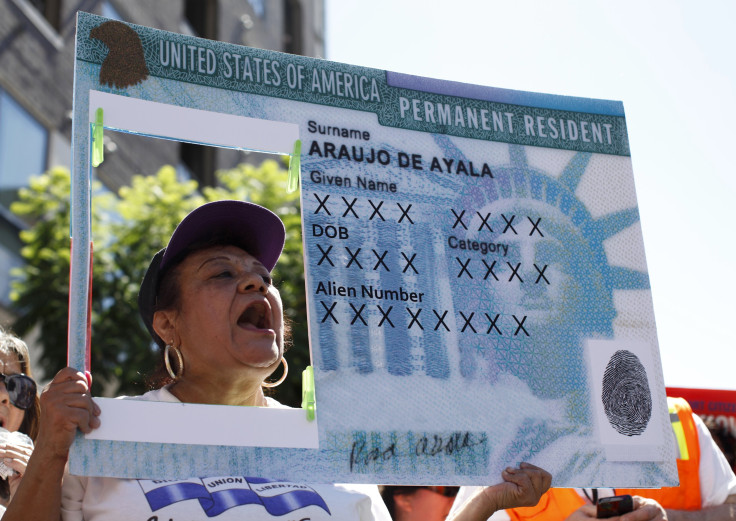Who Will Trump Deport? President's Executive Order Says Green Card Holders Could Be Deported For Minor Crimes

President Donald Trump's crack down on immigration could result in the deportation of legal immigrants and lawful permanent residents, legal scholars say.
Trump signed two executive orders on immigration policy Wednesday. One set the framework for construction of a wall along the southern border of the U.S. The other, titled "Enhancing Public Safety in the Interior of the United States," sought to remove federal funding for sanctuary cities -- cities that do not seek to deport unauthorized immigrants. It also prioritized the deportation of removable aliens who are convicted of "any criminal offense."
However, many news reports incorrectly used the term "undocumented immigrants" in place of "removable aliens" when reporting on the executive order. The two terms, however, are not interchangeable.
A removable alien is anyone in the country who is not a citizen and has committed a crime which makes them removable. The definition includes lawful permanent residents and green card holders who are in the country legally, as well as undocumented immigrants. Under the executive order, legal residents could be deported if they "have been convicted of any criminal offense" or even if they have only "been charged with any criminal offense, where such charge has not been resolved."
Trump immigration enforcement priorities include everyone convicted, charged, or who "committed acts" that constitute ANY crime. pic.twitter.com/wiwolZjrJi
— Carl Takei (@carltakei) January 25, 2017
Rosa Goldensohn, a reporter with Crain's New York, reached out to seven immigration law professors who confirmed that the executive order applied to legal residents as well as undocumented immigrants.
"All undocumented immigrants are removable, but not all removable immigrants are undocumented," Adam Cox, a law professor at New York University, wrote to Goldensohn. "Many immigrants in lawful status -- even green card holders who have lived for decades in the U.S. -- can become 'removable' if they run afoul of the grounds of removability codified in section 237 of the immigration code (e.g. if they are convicted of an offense that makes them deportable under that section of the code.)"
Criminal offenses include misdemeanors and felonies. In some states, like Florida and Texas, possession of a small amount of marijuana is still a criminal offense. Civil violations, which include minor violations like speeding, are not criminal offenses.
© Copyright IBTimes 2024. All rights reserved.






















